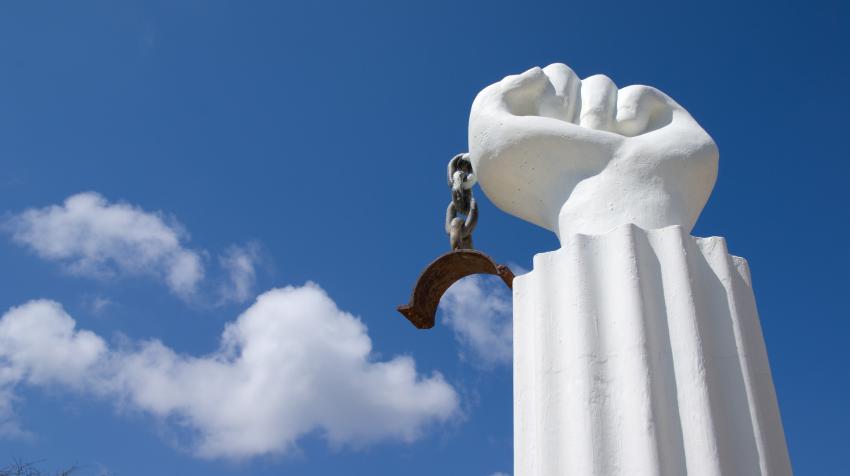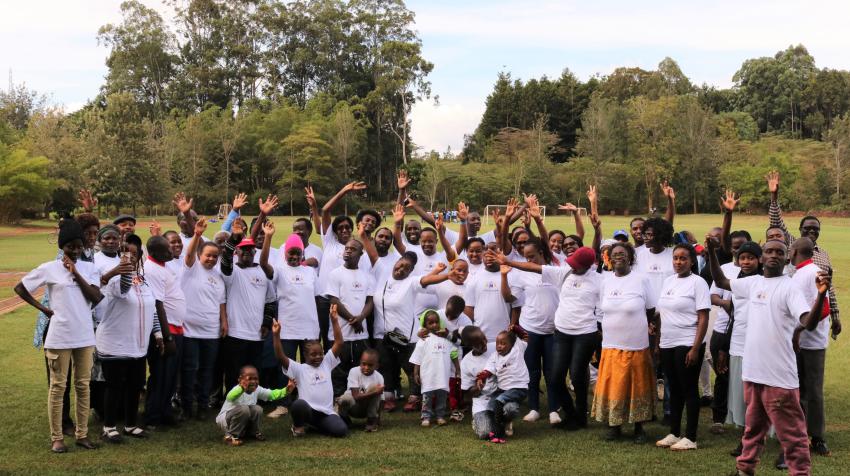December 2014, No. 3 Vol. LI, Conference Diplomacy
IAUP as a Global Forum for Leaders in Higher Education
The International Association of University Presidents (IAUP) is an international association of university chief executive officers—presidents, rectors, vice-chancellors, and chancellors—from institutions around the world. A recognized non-profit charity, IAUP will celebrate its fiftieth anniversary in 2015. Every third year it holds its general assembly in a different part of the world to discuss important issues in higher education. The first of these triennial conferences was held in 1965 in England; the latest was held in 2014 in the city of Yokohama, Japan. Each triennial conference focuses on a specific theme and provides IAUP membership with an opportunity to discuss the challenges and changes that face higher education worldwide.
In addition to the triennial conference, IAUP also conducts semi-annual conferences in international locations of cultural and historical significance. These gatherings include meetings of the IAUP Executive Committee, IAUP special interest groups, commissions, task forces and IAUP Council of Senior Advisors. Semi-annual conferences often include regional meetings arranged by local universities and institutions of higher education. Since IAUP is supported by various regional university associations, its debates at semi-annual conferences are also attended by government representatives, accreditation agencies and public relations professionals. In order to promote local involvement, IAUP created Regional Councils managed by regional chairs, who volunteer to provide leadership, representing IAUP in their home regions. These distinguished educators engage college rectors, vice-chancellors, chancellors and presidents in service to the mission and purposes of IAUP in their part of the world.
The primary purpose of IAUP is to strengthen the international mission and quality of higher education worldwide. IAUP offers a regular forum for higher education leaders and institutions to identify and discuss in a global and cross-cultural context the major issues and challenges facing institutions of higher learning today. Currently, there are more than 350 registered members from 77 countries who gather to discuss various issues in academia globally and conduct activities to promote peace and international understanding through education. Our goals include providing a worldwide vision of higher education, promoting academic exchange and developing effective networking and collaboration among university leaders.
IAUP and the United Nations
Since the goals of global education clearly resonate with the principles of the Charter of the United Nations, IAUP has been working very closely with the Organization, its programmes and specialized agencies. For example, IAUP and the United Nations work together on the Commission on Disarmament Education, Conflict Resolution and Peace. IAUP is the only external organization to manage this joint commission with the United Nations, and commission delegates are appointed by IAUP President. IAUP was also instrumental in creating the Year of Peace at the United Nations and is recognized annually at the United Nations Day of Peace activities. The Commission works with United Nations offices dedicated to peace, disarmament and conflict resolution in order to further their objectives.
Another important joint programme is the United Nations Academic Impact (UNAI). This is a global initiative that aligns institutions of higher education with the United Nations in realizing the goals of the Organization through activities and research in a shared culture of intellectual social responsibility. There are 10 basic principles to be supported and advanced by the commitment of member universities (see end of article).
As of August 2014, the number of UNAI member institutions is approximately 1,000. I am frankly amazed at the number of participating colleges and universities. When UNAI was initiated in November 2010, the first step was to simply increase the number of institutions involved in this global project, while sharing information about their activities. Considering the number of member institutions today, UNAI has been extremely successful in its first three years. Many schools publish and update information about UNAI-related activities on their websites, and I often hear from the leaders of those institutions and other IAUP members how UNAI is helping to globalize their schools. I believe that the United Nations and IAUP are creating a win-win relationship through UNAI.
There is also a group called Action by Students to Promote Innovation and Reform through Education (ASPIRE), operating in some UNAI member institutions. ASPIRE is a student-driven initiative that promotes and supports the 10 principles of UNAI. The first ASPIRE group was established in the Republic of Korea in 2010, followed by chapters in Austria, Japan, the United States of America and other countries. The students of ASPIRE are committed to working together to help address global problems related to energy, food supplies and poverty. They believe that in order to do so, they need to learn how to transcend the differences between countries, cultures, religions, conflicting values and perspectives. They also feel that as a younger generation they can come up with more innovative ideas and solutions for global issues. As a union of executives in higher education, IAUP fully supports ASPIRE activities in conjunction with the initiative of UNAI.
This is how the United Nations programmes encourage and help faculty, staff and students to work together for a better world. The Charter of the United Nations and the principles of UNAI embody the core ideas and values of global higher education.
Our Challenges
IAUP held its Seventeenth Triennial Conference in Yokohama, Japan, in June 2014. The theme of the conference was “Creating the Future of Higher Education.” As we began preparations for the conference, I first thought of a more specific conference theme that would encourage members to work on concrete topics and issues. I eventually came to realize, however, that the theme must cover a broader, more diverse array of ideas and encourage people to work together for the better future of the world. “Creating the Future” requires not just knowledge, experiences and skills, but also collaboration, patience and passion. Working within an international, global community presents additional challenges and rewards. In particular, since the Great East Japan Earthquake and Tsunami of 2011, I have been convinced that we are really living in one world and must work together for the common good.
Going back to the beginning of the twentieth century, many doors were opened by great discoveries. In 1903, Wilbur and Orville Wright successfully launched a heavier-than-air vehicle into the bone-chilling winds at Kitty Hawk, North Carolina. This first step made possible the supersonic flights and rocket launches that we see today.
The first successful transmission of voice by the Canadian inventor Reginald Fessenden in 1902 paved the way for radio broadcasts and simultaneous communication. Thanks in part to his invention, images as well as voice are now instantaneously transmitted around the world and mobile devices have proliferated. Henry Ford’s introduction of assembly line manufacturing for the Model T in 1908 was the precursor to the age in which everyone could own his or her own automobile, giving birth to today’s motorized world.
These scientific and technological breakthroughs, however, caused changes not just in human lifestyles but also in the very structure of society. Demands for social reforms by the working class, coupled with the rise of democracy movements in the autocratic countries of Europe, gradually led to tensions throughout the world, culminating in the outbreak of the First World War in 1914 and the Russian Revolution in 1917. The power of modern technology also carried with it destructive forces that still dwarf the imagination. Over 10 million people died in the First World War. The culmination of the Second World War saw the first use of nuclear weapons, as despair cast its shadow upon the world. The modern society that developed so rapidly in the twentieth century thus illuminated many aspects of human well-being, while at the same time casting life-threatening shadows in the form of two world wars, economic depression and destruction of the natural environment.
Those of us living in the twenty-first century have a responsibility to work towards sustainable development on a global scale. In short, we need to create a better future. In that sense, worldwide expectations towards higher education are, and should be, greater than ever. The growth of world population, together with changes in social expectations and values, has led to both quantitative and qualitative changes in higher education. Medieval universities taught the seven liberal arts; modern universities provide education as preparation for employment. Methods of instruction have also changed greatly with the development of distance learning and other educational technologies. When we look at the world as a whole, however, great disparities remain. Those of us in higher education must continually stay on top of current events and boldly scrutinize ongoing changes. Many different cultures, religions and values coexist in today’s world. It is vitally important to respect the culture, religion and history of all nations and peoples and try to understand each other’s perspectives. We in higher education have a calling to respect diversity, while empathizing with those in need and learning to see things from their perspective. I believe that this attitude precisely reflects the spirit of the Charter of the United Nations and its principles.
With the support of the United Nations, IAUP will continue to strengthen higher education worldwide and improve the standards of higher education by promoting mobility and diversification through projects such as UNAI and ASPIRE. We also support students and educators in regions where education and research are poorly developed due to social instability through projects such as IAUP/UN Commission on Disarmament Education, Conflict Resolution and Peace. I believe that together IAUP and the United Nations can go further in developing new ideas and solutions for peace in the world.
UNAI PRINCIPLES
1. A commitment to the principles inherent in the Charter of the United Nations as values that education seeks to promote and help fulfill.
2. A commitment to human rights, among them freedom of inquiry, opinion, and speech.
3. A commitment to educational opportunity for all people regardless of gender, race, religion or ethnicity.
4. A commitment to the opportunity for every interested individual to acquire the skills and knowledge necessary for the pursuit of higher education.
5. A commitment to building capacity in higher education systems across the world.
6. A commitment to encouraging global citizenship through education.
7. A commitment to advancing peace and conflict resolution through education.
8. A commitment to addressing issues of poverty through education.
9. A commitment to promoting sustainability through education.
10. A commitment to promoting intercultural dialogue and understanding, and the “unlearning” of intolerance, through education.
The UN Chronicle is not an official record. It is privileged to host senior United Nations officials as well as distinguished contributors from outside the United Nations system whose views are not necessarily those of the United Nations. Similarly, the boundaries and names shown, and the designations used, in maps or articles do not necessarily imply endorsement or acceptance by the United Nations.




